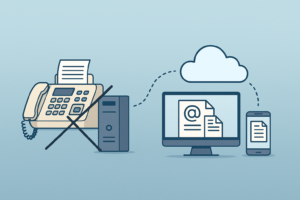It doesn't take a major tech geek to realize that the state of cybercrime is growing increasingly worrisome. This year alone we have already seen hacks targeting companies in many different industries, from the Sony Pictures breach to the attack on health insurer Anthem. According to a study recently released by cybersecurity firm Symantec, 317 million new pieces of malware were created in 2014. Using that malicious software, five out of six companies were targeted by email attacks, an increase of 40 percent from 2013.
One part of the problem is that cybercriminals are creating more sophisticated malware faster than enterprise defense systems can evolve to combat them. Perhaps an even larger, or at least more pressing, part of the equation is the fact that employees are rarely informed enough to make good decisions when it comes to online behavior. According to a new report released by Verizon, 11 percent of employees click on malicious attachments in emails. Even more commonly seen is IT decision-makers employing outdated versions of software, allowing hackers to gain access to enterprise networks by exploiting vulnerabilities. Among cyberattacks that originated from a software vulnerability in 2014, more than 99 percent involved vulnerabilities for which patches were made available more than one year earlier.
"Businesses face almost 1 million new malware threats each day."
A common misconception surrounding cybercrime and data breaches is that only major corporations get hacked. This could not be further from the truth. According to the Symantec survey, 60 percent of all targeted attacks that took place in 2014 affected small- and medium-sized businesses. With so many new threats facing companies – nearly 1 million every day – it can be easy for enterprise decision-makers to feel overwhelmed when it comes to implementing a cybersecurity strategy. Some defense systems are extremely costly to deploy, while others are rendered useless by lazy employees trying to get around time-consuming safety measures.
 Companies need to look for a new solution to their security problems.
Companies need to look for a new solution to their security problems.Improving enterprise security might rely on the fax machine
So how can companies continue to be cost-effective while employing a security solutions that will actually work? Implementing a more secure communication channel like fax-over-IP will greatly reduce the amount of malicious software targeting a company, and increase overall network defense. FoIP services allow companies to send faxes over the Internet and, in the process, create an encrypted database of information stored in the cloud.
When a document is sent with FoIP, the message it contains is encrypted and stored on the user's dedicated server. The specified recipient of the document is the only person with access to the code that will decrypt the message, making FoIP just about the safest form of business communication out there today. FoIP services allow companies to receive faxes directly to their inbox, eliminating the need for traditional email correspondence and the threat of phishing scams along with it.
Enhance enterprise communication, collaboration and compliance efforts with a proven FoIP solution from FaxCore. Contact FaxCore today to learn more about their 'Partly-Cloudy' fax solutions.




